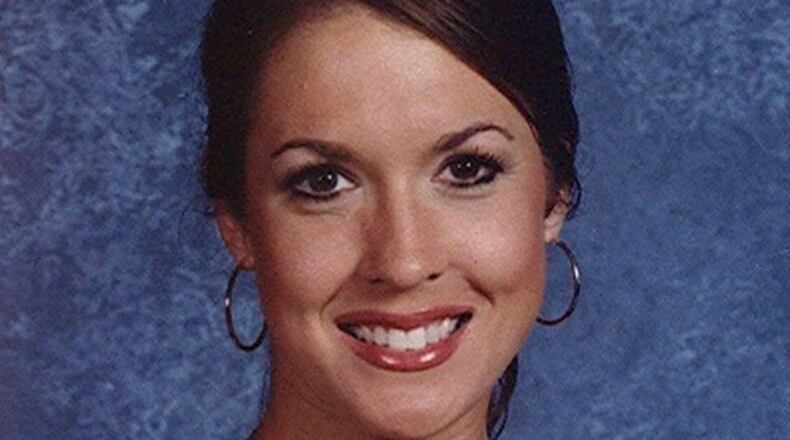If Ryan Alexander Duke has the right to use lawyers representing him free of charge, is the state obligated to provide him with funds for expert witnesses if he cannot afford them?
During lively arguments Tuesday, justices on the Georgia Supreme Court grappled with that thorny legal question in the closely watched case involving the killing of former South Georgia beauty queen Tara Grinstead.
Duke stands indicted for the murder of Grinstead, who went missing in October 2005 when she failed to show up to teach her history class at Irwin County High School. After his 2017 arrest, Duke confessed to the crime, authorities said.
Duke initially was assigned a public defender to represent him, but he later chose to be represented pro bono — i.e., free of charge — by private attorneys John Merchant, his wife Ashleigh Merchant and Evan Gibbs.
When the lawyers asked for funds for three experts, Superior Court Judge Bill Reinhardt denied it. But Reinhardt ultimately allowed the lawyers to file a pretrial appeal of the issue, which is one that the state high court has never considered before. Its ruling is expected in the coming months.
“All we’re asking for is the same rights to experts that (Duke) would have if he had a public defender,” John Merchant told the justices during Tuesday’s arguments.
But Chief Assistant District Attorney Jennifer Hart disagreed. Since Duke now has “other resources” — his free counsel — he doesn’t qualify for such funding, she said.
That didn’t sit well with a number of justices, particularly Justice Charles Bethel.
“They’re looking for experts and they don’t have money for experts,” he said. “The argument that you are no longer indigent because you have other resources, which aren’t sufficient to get the thing that you need, seems odd to me.”
Justice Nels Peterson asked, “If there is a constitutional right to select counsel of your choice and an indigent person is offered free counsel, counsel they don’t have to spend money on, why do they surrender their constitutional right to state-funded experts?”
Several justices suggested it didn’t make sense for Duke to be saving money for the state by not needing a public defender while being denied funding for experts most indigent defendants would have a right to.
Justice Sarah Hawkins Warren said the case presented the court with “a collision of two constitutional rights.”
On the one hand, Duke exercised his right to counsel, Warren said. “Why does that necessarily impair his rights to get experts, which he would argue was part of his due process rights?”
Peterson added: “Mr. Duke’s lawyers aren’t costing the state anything. … Why is it rational for the state to insist that if Mr. Duke wants a little bit of money for experts, he also has to accept the state-funded public defender at greater cost to the state?”
Credit: HYOSUB SHIN / AJC
Credit: HYOSUB SHIN / AJC
Conspicuously absent from the legal briefing and the arguments in the case was the Georgia Public Defender Council, even though the Supreme Court had asked it to weigh in. This seemed particularly noteworthy because some justices said if the GPDC had simply signed a contract with Duke’s pro bono legal team, they would then be entitled to the funds for experts that they need.
Justice David Nahmias said he was “annoyed” that GPDC didn’t take the court up on its invitation.
And Peterson said, “It is regrettable that GPDC chose to stay out of this case when they really are the nub of it.”
About the Author
The Latest
Featured






